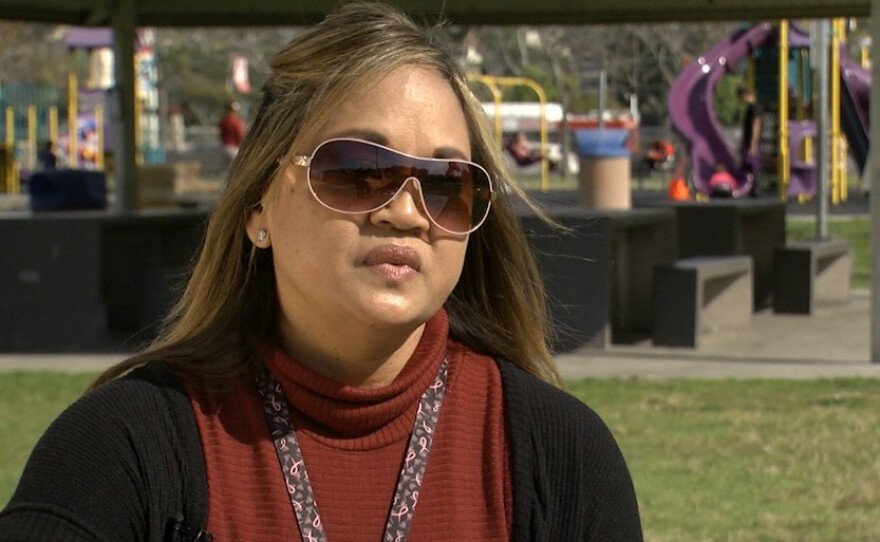Andrea Kaliki Maestas's children are now grown, so the wages she earns as a preschool teacher only need to cover her own living expenses.
But her pay of $12 an hour isn't enough. She recently moved in with her parents to care for her sick mom and because she is having trouble making ends meet. She also still helps her 19-year-old son with expenses sometimes.
"The economy is crazy," she said. She and her fiance had their own apartment but had to give it up. "We struggled, even being a two-income family."
Related: Poverty In San Diego County Higher Than During Great Recession
Maestas's household is one of the more than 269,000 in the county that don't make enough to cover basic living expenses, according to a new report from the nonprofit Center on Policy Initiatives. That's a third of all households in the county that aren't bringing in enough to get by.
The report, called "Making Ends Meet," is meant to include San Diego-specific costs not factored into the federal poverty measure, said Peter Brownell, the research director at Center on Policy Initiatives.
It measures costs for housing, transportation, child care, food and taxes in San Diego County.
For a single adult with no children, the report says the minimum hourly wage needs to be $13.23 for a full-time job to cover the basics. A single adult with two children would need an hourly wage of $31.32. San Diego's minimum wage is $11.50 an hour, and people outside the city earn at a minimum $10.50 an hour.
The report's calculation "means that over a million people in San Diego are living in economic insecurity, are living on the edge and are worried about their next meal," Brownell said.
The report found that the number of households below the calculated poverty line dropped slightly from 38 percent in 2014, the last time the report was done.

But that doesn't include Maestas. She's worked for 15 years as a preschool teacher, and 10 years at her current job at the Episcopal Community Services Head Start program. She has an associate degree and said she'd only be eligible for a raise if she earned a bachelor's degree, but she can't afford the extra education. In the summer, she qualifies for food stamps because her school is closed.
"We're working with children during the most important time of their life and we need to be compensated for our hard work," she said. "We work really hard and we love doing what we're doing, but we still need to be able to support our own families and support ourselves."






